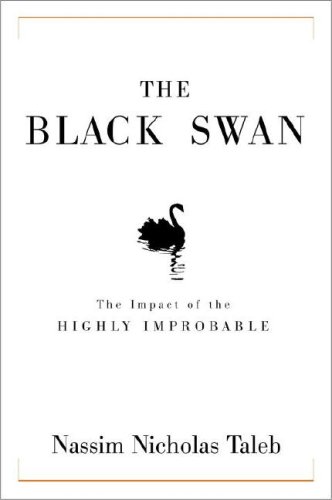Recommended: The Black Swan
 The Black Swan by Nassim Nicholas Taleb is a book that everyone should read, and every academic (especially game researchers) must read.
The Black Swan by Nassim Nicholas Taleb is a book that everyone should read, and every academic (especially game researchers) must read.
The premise of the book is simple enough. Basically, his thesis is that we think we know more about the world than we really do, and that there are “Black Swans” out there that exist beyond any models of forecasting we can build. The Black Swan notion comes from the belief people had for centuries - that all swans were white because no one ever saw a black swan, until they discovered it in Australia. Because people tend to imagine the world based on their empirical observations, people tend to have a “confirmation bias” that makes them notice things that fit their worldview, and ignore what they can’t fit in.
Taleb relentlessly criticizes financial analysts, economists, statisticians, and bad researchers, especially those who cling onto quantitive data and misuse it for their own purposes. For me, I think his book throws a wrench on design-centered approaches to game studies, especially since he questions any that we can model social (or even natural) phenomenon. He suggests going to observation to theory (or design) instead of the other way round (which is what design-centered studies tend to do). What I found particularly refreshing is that Taleb points out the many common errors of judgment that we make, not only in everyday life, but even in the conclusions we reach in research. I can’t tell you how many times I’ve read a study (usually quantitative) that made me scratch my head and wonder how such a flawed study went unnoticed. If nothing else, Taleb’s book will sharpen your focus on you approach your decisions and steer you away from erroneous predictions.
My only gripe is that Taleb is a bit of a name-dropper. It was a bit annoying in the beginning, but once you get past it, it’s a great and thoughtful ride. There’s a lot of wit in his writing, but you often have to know the people he mentions to fully appreciate it. I don’t know if this would turn off non-academic readers, but I certainly think everyone can learn from it.
Nearly everyday I think of someone else to recommend it to. His bibliography is to die for, so if you’re reading this, please try to get your hands on this book, and after you read it, get it for someone you know.